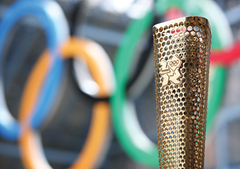Behind the titles: the honours process
 This year’s new year honours list was greeted with some surprise locally, as none of Northern Ireland’s Olympians and Paralympians were recognised. agendaNi looked at the process behind the announcement and found that citizenship plays an important role in whether a person can receive such an award.
This year’s new year honours list was greeted with some surprise locally, as none of Northern Ireland’s Olympians and Paralympians were recognised. agendaNi looked at the process behind the announcement and found that citizenship plays an important role in whether a person can receive such an award.
A specific honours list recognised the achievements of 78 members of Team GB but the absence of nominations meant that no local athletes were considered. Twenty-eight athletes from the province competed at the London 2012 games: 20 with Team Ireland and eight with Team GB.
Nominations are reviewed by the seven-member Sport Honours Committee, which is chaired by Lord Coe and includes the Head of the Northern Ireland Civil Service, Malcolm McKibbin. The committee then recommends names to the Prime Minister.
A Cabinet Office spokesman explained that the committee looks at sporting excellence, length of service, “giving back” to the community and whether the nominee had any previous honours. “Services to the UK” could include services to any place within the UK.
Honours are normally only open to British citizens or dual nationals. They are occasionally awarded on an honorary basis to Irish citizens although these recipients must receive prior approval from the Irish Government. Eddie Jordan OBE and Niall Quinn MBE are two examples from the world of sport.
The Republic has no formal honours system but it grants a number of official awards for exceptional artistic ability (Aosdána), community service by young people (Gaisce), and bravery. Local athletes, however, can take great pride in winning 12 medals at the games.





